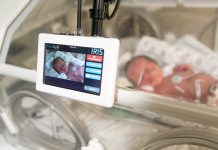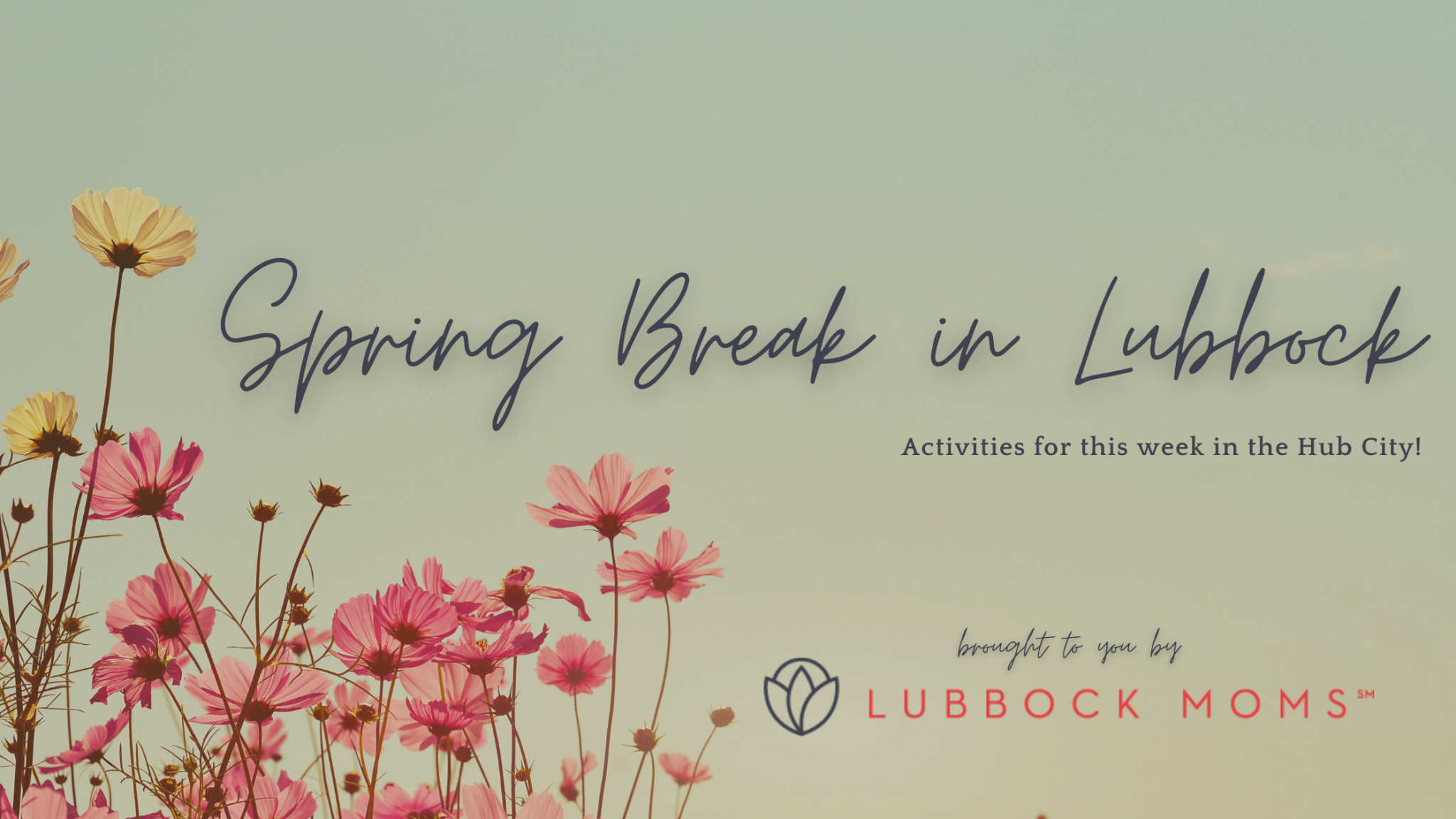
Have you heard of PocketLab? PocketLab is science that fits in your pocket!
My kids and I were given the opportunity to try out the Voyager sensor. From the PocketLab website, “Meet Voyager, the adventure sensor. The world is made of motion. Attach this rugged multi-sensor to almost anything and see what happens. PocketLab Voyager combines eight popular science sensors into a single, sleek device to create a science lab that fits in your hand.
- Measure almost anything, including motion, altitude, light, magnetic fields, etc.
- Get more done with our no-prep lab solution that combines Voyager with a digital lab Notebook (free or Pro) and a built-in library of lessons.
- Adapt to any classroom — in-person, hybrid, or remote — because everything we make is designed wireless and remote-ready from day one.”

As soon as this was introduced to my two curious kids, ages 10 and 7, their gears started turning immediately!
All kinds of ideas were written down. We browsed through the extensive Lesson Library in Pocketlab Notebook and watched a handful of videos on PocketLab’s YouTube page. The Lesson Library on their website includes current event lessons, such as the James Webb space telescope and how it captured the fantastic pictures that have caught our hearts and imaginations. There are also some very excellent teachers, like Neil deGrasse Tyson, teaching a lesson about Discovering Exoplanets.
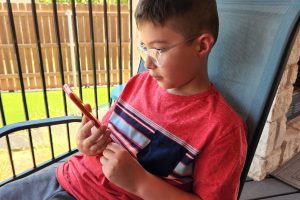
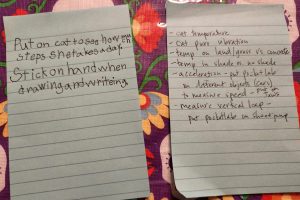
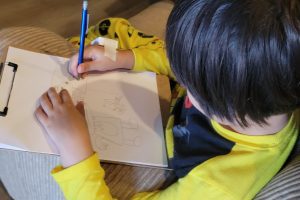
Unfortunately, we had to narrow down our list for trial experiments.
We recently had turf installed in our backyard, and we tested the heat index and used the temperature probe accessory for the Voyager to compare full sun turf to shaded turf during the hottest part of the day. There is a considerable difference in the full sun versus a shady area! To be fully transparent, the Voyager sensor is very user-friendly. My 10-year-old took over running the experiments, watching the data happen in real-time, saving each trial, and giving each trial a name.
I am convinced that this generation of scientists is born with all this knowledge already downloaded.
We have a robot vacuum, and we used the Voyager sensor to measure the acceleration on a vacuum day. Watching the vacuum with the sensor taped on top while collecting data was a lot of fun! We also measured the acceleration of throwing an object and drawing, and we taped the sensor on the top of shoes as the kids jumped. We had a couple of experiments with our senior cat, but she was uninterested in being a science team member.
My kids loved this entire project, from brainstorming experiments to actually doing the experiments and even watching the data happen in real time and comparing the data.
I was told that both kids want a Voyager sensor of our own, for “just science stuff, you know.”
The Voyager sensor has had my kids thinking about experiments in everyday routines. As a mom, I have loved watching that spark in their eyes when they announce what they want to test and their hypothesis. It has been remarkable to hear my kids think outside the box and listen in on their conversations with each other while incorporating the sensor into their daily plans.
As an educator, the idea of having readily accessible science equipment at hand opens up a ton of possibilities in the classroom. When I think about science experiments, I think of Bunson burners and dissecting equipment, and the smell of formaldehyde hits my nose. You must haul gear out, set it up, and go over safety rules before getting to the experiment. All of these are great in hands-on experiments, but it would be nice to have the Voyager sensor incorporated into classrooms.
It seems common for students to have school-issued laptops, and with PocketLab, each student can create a student profile in PocketLab Notebook and keep track of their trials. With a teacher profile in Notebook, teachers can assign lessons to their classes using the Lesson Library. The Lesson Library has many filters to find the best lesson for their classroom. You can filter by subject, the kind of sensor you have, grade level, and channel. Teachers can also create their lessons and share them in the Lesson Library. A great introduction is the PocketLab YouTube page found here: https://www.youtube.com/c/ThePocketLab.
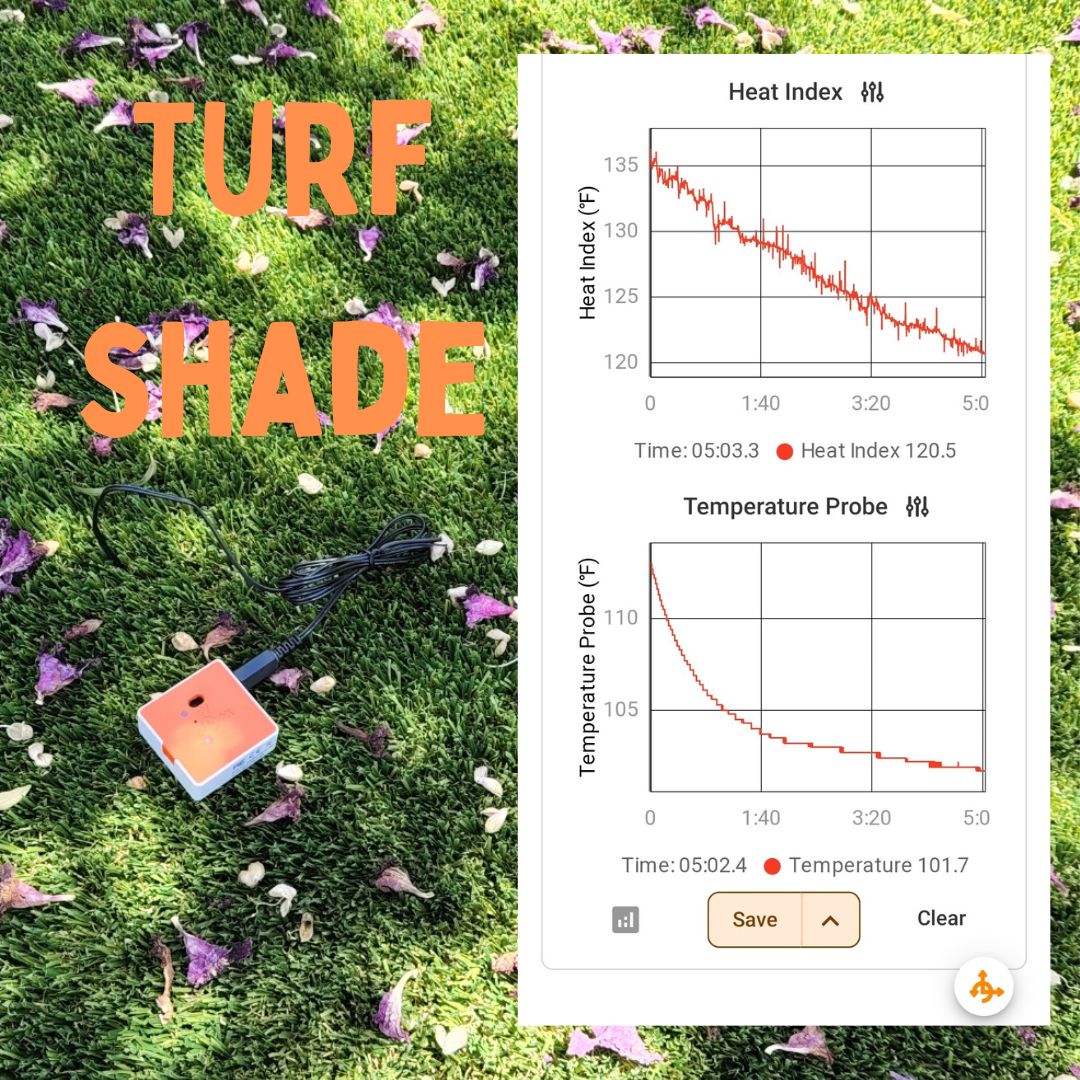
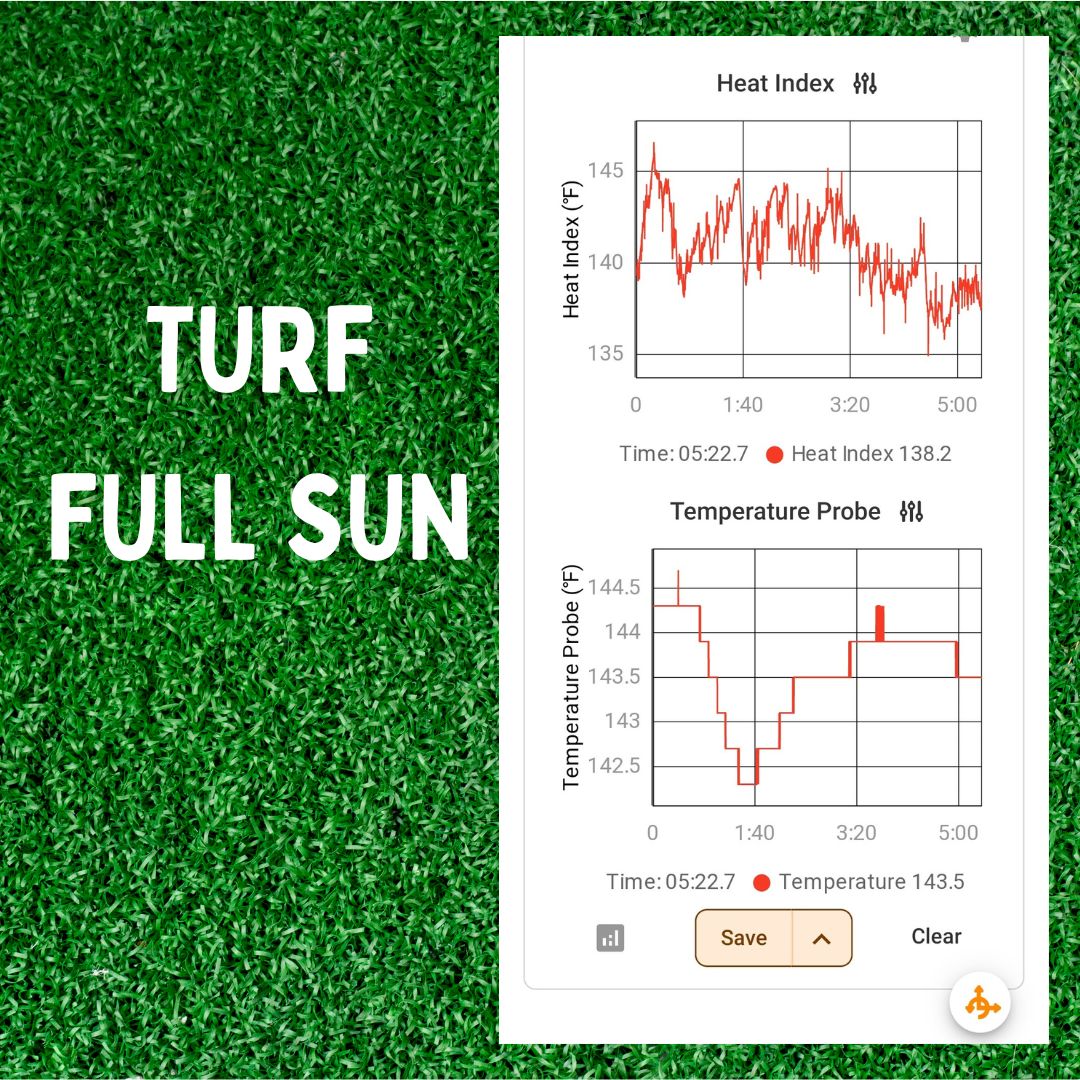
Why is STEM education so important?
According to Invent.org, “STEM-based education teaches children more than science and mathematics concepts. The focus on hands-on learning with real-world applications helps develop various skill sets, including creativity and 21st-century skills.
21st-century skills include media and technology literacy, productivity, social skills, communication, flexibility, and initiative. Other skills attained through STEM education include problem-solving, critical thinking, creativity, curiosity, decision-making, leadership, entrepreneurship, acceptance of failure, and more. Regardless of the future career path considered by these children, these skill sets go a long way to preparing them to be innovative.”
I would love for my kids to access PocketLab sensors at school. If this sounds interesting to you, you can email your school administration with the PocketLab website and fundraiser ideas. If you would like a PocketLab for yourself, you can find their store here.
Lastly, if you are an educator, administrator, or active in your school’s PTA, PocketLab and the Texas Tech University Climate Center would like to invite you to a Science Community Happy Hour Thursday, August 18th at 5 pm at Burklee Hill Vineyards.
Come for the free drinks and food and stay for a chance to connect with colleagues and friends and hear from Dr. Asheley Landrum, Assistant Professor at TTU. Dr. Landrum will discuss important evidence-based considerations for effective public outreach and the key aspects of human psychology that underlie them in a talk titled “Communicating Science Strategically.”
RSVP Here: Webinar – TTU Happy Hour (thepocketlab.com)




